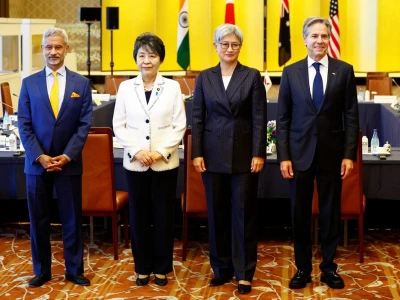
Australia risks losing pole position in critical minerals race
"One of the largest issues we face is project funding," Crane said.
MELBOURNE, March 30 (Reuters) - Australia is at risk of losing its head start in critical minerals processing because it has not yet laid down a national strategy, even as other governments are splashing out incentives to grab market share and bolster security.
Supplier of nearly half of the world's lithium, Australia is also the world's third-largest cobalt exporter and a significant producer of rare earths, copper, graphite, manganese and other minerals key to the global energy transition.
However those minerals are largely processed in China, including into materials essential in batteries and magnets for products from electric vehicles to missiles. Western nations want to ease its grip after supply was disrupted during the COVID-19 pandemic.
Consultants say Australia should at least move to producing the chemicals and battery active materials needed for cell manufacturing.
"There's lots of discussion and talk on various domiciles wanting to move forward, but ultimately it's all about actions," Pilbara Minerals CEO Dale Henderson told Reuters.
The Grattan Institute, a think tank, estimates the critical minerals industry could add more than $400 billion to the economy by 2050, a bigger contribution than the coal industry, Australia's no.2 export, today.
Industry executives are calling for a national strategy to speed that development by fast-tracking permitting, offering preferential access to industrial land and subsidies, among other measures.
They want rapid action in light of new competition from the U.S., Canada and the European Union, which have laid out critical minerals strategies including billions of dollars in incentives.
Top global miner BHP Group's CEO Mike Henry told media last month Australia was at risk of other countries moving to "eat our lunch".
AID NEEDED
With Canberra's help, Australia needs to play to its strengths, which include having abundant renewable energy sources and being a reliable supplier to its global partners, consultants say.
The government has provided more than A$250 million ($167 million) in support to Pilbara Minerals, the country's biggest independent lithium miner, which approved a lithium expansion in Western Australia on Tuesday.
CEO Henderson said he was encouraged by federal and state efforts, but added: "Of course, the government could always do more."
In the first ministerial round table on critical minerals strategy in three years, state and federal ministers last week agreed development of the sector was a national priority, discussed how to support growth, and committed to hold regular round tables, Resources Minister Madeleine King said.
King said on Wednesday a critical minerals strategy would be released "soon". However the government has not said when it would deliver its national battery strategy.
"There is a window of opportunity to become a key player in battery manufacturing here in Australia," Industry Minister Ed Husic said last week. "We cannot let it close."
FUNDING HURDLES
Australia has battled to overcome its reputation as a supplier of raw materials that fails at manufacturing, partly because its distance from major markets means it struggles to build scale to overcome high labour costs.
While major players, including BHP, Tianqi Lithium Corp and Albemarle Corp, are building up operations that will turn ore into battery chemicals, for smaller players the key obstacle is funding.
Making the right product grades consistently is also a challenge. Bankers are wary of lending to a capital-hungry sector developing new technologies, especially to companies with small balance sheets, typical of the sector, executives said.
Cobalt Blue Holdings Ltd, with a market value of A$140 million, won a small grant and fast-track permitting status but still faces a funding shortfall and wants government assistance to secure a refinery site for its A$560 million project, investor relations manager Joel Crane said.
"One of the largest issues we face is project funding," Crane said.
Arafura Rare Earths, capitalised at A$1.1 billion, is counting on loans from the Australian and German governments to fund more than half its A$1.8 billion Nolans mine and processing plants.
"The elements for an effective critical minerals strategy are in place. The challenge is to stitch them together and deliver. This is a once-in-a-century opportunity," the Grattan Institute said in a report last month.




